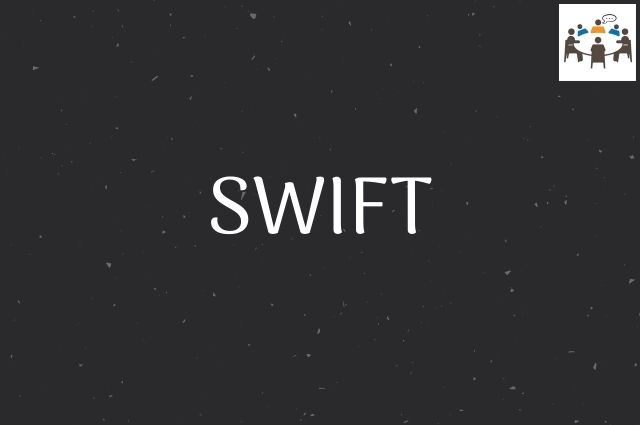Theme:
- Russia’s invasion of Ukraine resulted in several sanctions on Russia, which includes its partial ban from SWIFT.
SWIFT:
- SWIFT (Society for Worldwide Interbank Financial Telecommunication) provides a secure financial messaging system for international payments. For example, if a person from India wants to send money to a person in Germany, he initiates a request in the local bank by giving the payee’s bank account number and SWIFT code of that destination bank. The bank will send a secure message using SWIFT to the destination bank in Germany. And then the money will be sent either directly or through intermediatory banks.
- SWIFT was founded in 1973, with headquarters in Belgium. Initially, it was used by 239 banks from 15 countries. Later, more banks started joining the system, and now more than 11,000 banks from over 200 countries use the SWIFT messaging system. Before SWIFT, telex was used for a similar purpose. It was very slow, error-prone and less secure.
- In 2012, Iran was excluded from SWIFT due to the EU’s sanctions on the country for its nuclear program. At that time, Iran lost almost half of their oil export revenues and 30% of their foreign trade.
- When Russia invaded Ukraine in February 2022, several sanctions were imposed by the EU, UK and US, which included SWIFT sanctions. Seven Russian banks were removed from SWIFT. Banks that are handling energy payments were not removed to avoid disruption of energy flows to Europe. At present, EU countries are depending on Russia for oil and gas imports. After the reports of war crimes by Russian soldiers in Ukraine, they are working to switch to alternative sources.
Impact of SWIFT sanctions on Russia:
- It is now difficult for Russian banks to send and receive international payments. Russia founded its own financial messaging platform – SPFS (System for Transfer of Financial Messages) in 2014 when the west threatened to cut it off from SWIFT after Russia annexed Crimea in the year 2014. At present, SPFS is being used for domestic transfers in Russia. Only a few banks are members of SPFS. So, it cannot be a good alternative for SWIFT yet.
- China too launched its own payments systems – CIPS (Cross-Border Interbank Payment System). But CIPS itself relies on the SWIFT messaging system for its operations.
- International payments without using the SWIFT messaging system are expensive, moreover, to ensure that the messages are secure, more money needs to be spent, so smaller transactions will be uneconomic. At present, there is no clear global rival to SWIFT.
- Russia’s stock markets and its currency Ruble faced the worst time after SWIFT sanctions. Now, Russia made it compulsory for its gas importers to pay in Rubles. Moreover, it pegged its currency with gold to move the energy trade away from the dollar system. One gram of gold is currently pegged at 5000 rubles. At present, Ruble is bounced bank. But a few economists are saying that this won’t work in the long term.
- Russia’s removal from SWIFT can affect the economies of a few other countries too. For example, several Russian companies owe money to foreign companies. Without SWIFT, it will be difficult for foreign companies to recover the money from Russian companies.
Conclusion:
SWIFT (Society for Worldwide Interbank Financial Telecommunication) provides a secure financial messaging system for international payments. Russia’s invasion of Ukraine resulted in several sanctions on Russia, which includes its partial ban from SWIFT. Most Russian banks are now excluded from SWIFT, which makes it difficult and expensive for them to make and receive international payments.
Your Turn:
What are your thoughts on this topic? Express your point of view through the comment section below. And subscribe to our blog to read answers to the trending GD topics.
References:
- EU bars 7 Russian banks from SWIFT, but spares those in energy
- Exclusion from SWIFT: what it entails
- Wielding SWIFT Against Russia Is a Big Risk
- Explainer: Russia could work around SWIFT ban but with high costs
Copyright @ Group Discussion Ideas.

